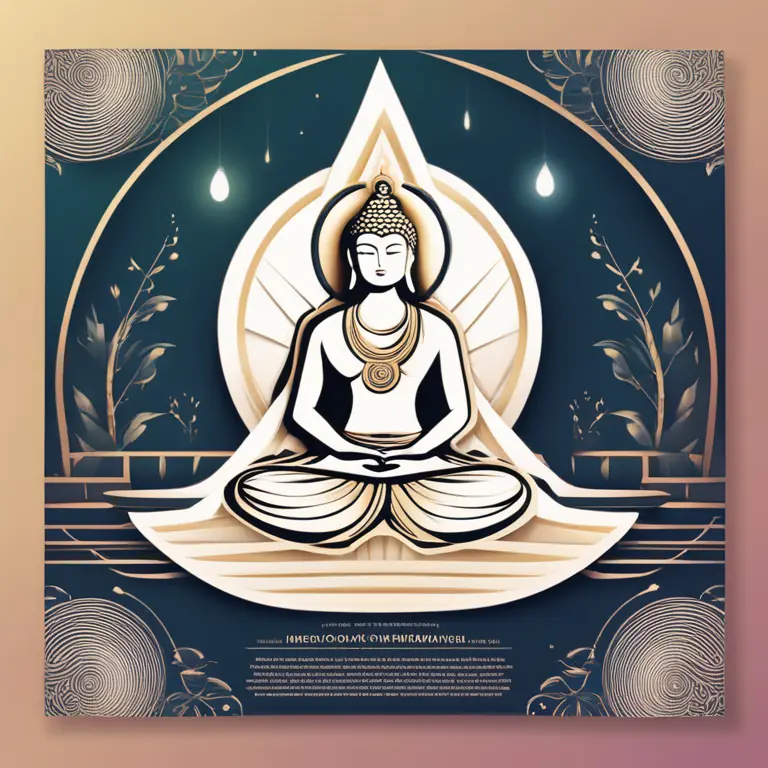
Calming the Mind: Meditation in the Face of Anxiety
Discover the potential of meditation to alleviate anxiety, with strategies and insights for a more peaceful mindset.
article by Hina Kurosawa
Meditation: A Soothing Balm for Anxiety
In the hectic world of 2024, anxiety has become a common fixture in our daily lives. Meditation emerges as a powerful antidote, bringing tranquility to troubled minds. In this practice, we learn to sit with our thoughts, witnessing them without judgment. By focusing on the breath or a mantra, meditation allows us to detach from anxiety-inducing patterns. The evidence-based benefits of this ancient practice have been reinforced by modern research, showcasing its effectiveness in reducing the symptoms of anxiety disorders. Engaging consistently in meditation can lead to significant improvements in mental health and overall well-being.

Customizing Meditation to Combat Anxiety
While meditation is a universal tool, its application should be personalized to fit individual needs. Beginners may find guided meditations particularly helpful, as they lead the practitioner through relaxation techniques and mindful awareness. For those dealing with high levels of anxiety, short sessions may be more feasible, gradually increasing in duration as comfort with the practice grows. It's also important to create a peaceful environment, free from distractions, which encourages relaxation and aids in focusing the mind. Tailoring the meditation experience in this way helps ensure that it is supportive and effective in managing anxiety.

The Challenge of Initial Restlessness
Embarking on a meditation journey is not without its challenges, particularly for those experiencing anxiety. Initial attempts at meditation may be met with increased restlessness and a surge in anxious thoughts. This is a natural response as the mind grapples with silence and stillness. It is crucial at this stage to be gentle and patient with oneself. With persistent practice, the mind starts to settle, and these disturbances tend to subside. The key is consistent practice, which trains the brain to enter a state of calm more readily with each session.

Scientific Insights into Meditation and Anxiety
Scientific investigations into meditation have shed light on how it counters anxiety. Neuroimaging studies reveal that meditation can lead to changes in brain regions associated with attention, emotion regulation, and self-awareness. These changes correlate with a reduction in anxiety levels. Additionally, meditation is known to decrease levels of the stress hormone cortisol, further contributing to an anxiolytic effect. Understanding the science behind meditation gives practitioners confidence in its efficacy and encourages a more informed approach to the practice.
Integrating Mindfulness into Daily Life
Meditation's benefits extend beyond the cushion; integrating mindfulness into daily life can amplify its anxiety-reducing effects. Mindful eating, walking, and listening are practices that cultivate a meditative state throughout the day. This presence prevents the mind from becoming entangled in worries about the future or ruminations on the past, which are common triggers for anxiety. Bringing mindfulness into daily activities helps build a reservoir of peace that bolsters the individual against the onset of anxious feelings.
Advanced Practices and Long-term Commitment
For those who have begun to see the benefits of meditation on anxiety, exploring advanced practices can be the next step. Techniques like transcendental meditation, Zen, or Vipassana offer deeper insights and potentially greater relief from anxiety symptoms. However, these practices often require a long-term commitment and a willingness to confront deeply-rooted thought patterns. Engaging with these practices under the guidance of experienced teachers can offer the support needed to navigate this journey effectively.
Final Thoughts and Encouragement
In an era where anxiety seems to be an inescapable part of life, meditation offers a haven of peace. Its simplicity and adaptability make it a sustainable practice for many. Anyone can begin this profound journey; the only prerequisites are the willingness to try and the commitment to persevere. Whether you seek to quiet the mind's chatter, discover inner stillness, or find a path through the fog of anxiety, meditation extends an open invitation to a calmer, more centered life.
Published: 1/18/2024
Modified: 1/18/2024
More predictions
Come back here soon to learn more about yourself and your future


Meditation Benefits for Seniors
Explore the profound impact of mindfulness meditation on enhancing the quality of life for older adults. Learn techniques to promote mental clarity, emotional balance, and physical well-being in senior years.


Unlock Beginner's Guide to Mindful Meditation
Embark on the journey of mindfulness through meditation with this beginner-friendly guide to creating a peaceful and aware mindset.


Unravelling Your Mindfulness Meditation Journey
Discover the steps to leading a successful mindfulness meditation session, enhancing emotional balance and tranquility.